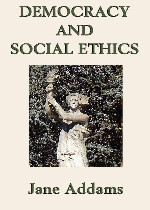
Democracy and Social Ethics(民主与社会伦理) 立即阅读
Jane Addams was a pioneer settlement worker, public philosopher, sociologist, author, and leader in woman suffrage and world peace. Beside presidents such as Theodore Roosevelt and Woodrow Wilson, she was the most prominent reformer of the Progressive Era and helped turn the nation to issues of concern to mothers, such as the needs of children, public health, and world peace. In 1931 she became the first American woman to be awarded the Nobel Peace Prize.
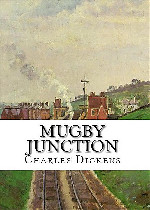
"Mugby Junction" is a set of short stories written in 1866 by Charles Dickens and collaborators Charles Collins, Amelia B. Edwards, Andrew Halliday, and Hesba Stretton. It was first published in a Christmas edition of the magazine All the Year Round. Dickens penned a majority of the issue, including the frame narrative in which "the Gentleman for Nowhere," who has spent his life cloistered in the firm Barbox Brothers & Co., makes use of his new-found freedom in retirement to explore the rail lines that connect with Mugby Junction. Dickens's collaborators each contributed an individual story to the collection.
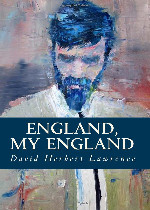
England, My England and Other Stories(英格兰,我的英格兰) 立即阅读
England, My England is a collection of short stories by D. H. Lawrence. Individual items were originally written between 1913 and 1921, many of them against the background of World War I. Most of these versions were placed in magazines or periodicals. Ten were later selected and extensively revised by Lawrence for the England, My England volume. This was published on 24 October 1922 by Thomas Seltzer in the US. The first UK edition was published by Martin Secker in 1924.
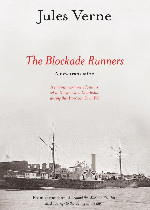
The Blockade Runners(突破封锁) 立即阅读
"The Blockade Runners" (French: Les forceurs de blocus) is an 1865 short story by Jules Verne. In 1871 it was published in single volume together with novel A Floating City as a part of the Voyages Extraordinaires series (The Extraordinary Voyages). An English translation was published in 1874. The American Civil War plot centers on the exploits of a British merchant captain named James Playfair who must break the Union blockade of Charleston harbor in South Carolina to trade supplies for cotton and, later in the book, to rescue Halliburtt, the abolitionist journalist father of a young girl held prisoner (the father, not the girl) by the Confederates.
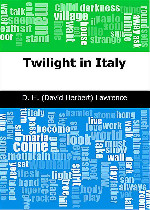
Twilight in Italy(意大利的黄昏) 立即阅读
Twilight in Italy describes Lawrence's time as an educated working-class Englishman living among the Italian working men and women in the region around Lake Garda, from the Austrian Alps to the North, to Switzerland and finally Como and Milan. He captures the psyche of Italian peasants without ever romanticising or patronising them. His quick intuition locks onto their harsh, narrow lives and deep primitive emotions, exploring the very soul of Italy and its approach to life, death, belief, love, sexuality and change.
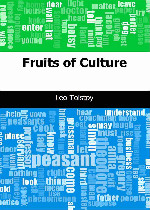
Fruits of Culture, aka The Fruits of Enlightenment, (1889-90, pub. 1891) is a play by the Russian writer Leo Tolstoy. It satirizes the persistence of unenlightened attitudes towards the peasants amongst the Russian landed aristocracy. In 1891 Constantin Stanislavski achieved success when he directed the play for his Society of Art and Literature organization.
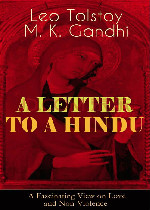
A Letter to a Hindu(给一个印度人的信) 立即阅读
"A Letter to a Hindu" (also known as "A Letter to a Hindoo") was a letter written by Leo Tolstoy to Tarak Nath Das on 14 December 1908. The letter was written in response to two letters sent by Das, seeking support from the famous Russian author and thinker for India's independence from British colonial rule. The letter was published in the Indian newspaper Free Hindustan. The letter caused the young Mohandas Gandhi to write to the world-famous Tolstoy to ask for advice and for permission to reprint the Letter in Gandhi's own South African newspaper, Indian Opinion, in 1909.
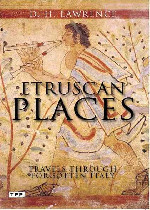
Etruscan Places(伊特鲁里亚的地方) 立即阅读
The Etruscan civilization, which flourished from the eight until the fifth centuries BC in what is now Tuscany, is one of the most fascinating and mysterious in history. An uninhibited, elemental people, the Etruscans enthralled D. H. Lawrence, who craved their "old wisdom," the secret of their vivacity and love of life. The exhilaration of Lawrence in his Etruscan adventures stands in stark contrast to his intimations of the darkness of Mussolini's Italy at a time when Europe was beginning its inexorable drift toward tragedy.
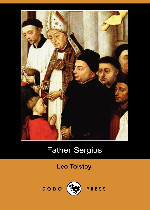
"Father Sergius" (Russian: Отец Сергий, translit. Otets Sergiy) is a short story written by Leo Tolstoy between 1890 and 1898 and first published (posthumously) in 1911.The story begins with the childhood and exceptional and accomplished youth of Prince Stepan Kasatsky. The young man is destined for great things. He discovers on the eve of his wedding that his fiancée Countess Mary Korotkova has had an affair with his beloved Tsar Nicholas I. The blow to his pride is massive, and he retreats to the arms of Russian Orthodoxy and becomes a monk.
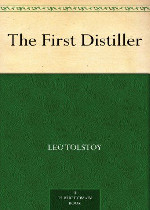
The First Distiller(托尔斯泰著戏剧) 立即阅读
CHARACTERS A PEASANT. { WIFE. HIS { MOTHER. { GRANDFATHER. { LITTLE DAUGHTER. A NEIGHBOUR. FOUR VILLAGE ELDERS. OLD WOMEN, WOMEN, GIRLS AND LADS. THE CHIEF OF THE DEVILS. HIS SECRETARY. A DANDY IMP. THE OFFICIALS' IMP. THE PEASANTS' IMP. SENTINELS, DOORKEEPERS AND IMPS.